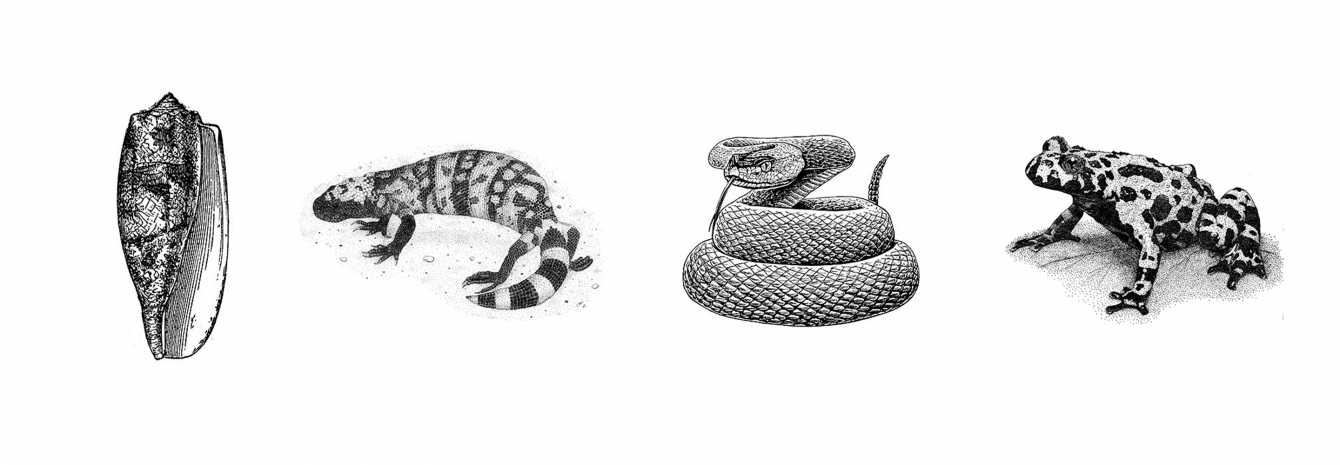Can cataloging venoms' effects lead to drug discovery?

Animal venom has been a source of medicine for millennia. To help medical researchers find new therapeutic applications, a team of Columbia data scientists recently created a database that gathers the results of all previously published research documenting the effects of venoms on the human body. The database, called VenomKB (“KB” is short for “knowledge base”), so far contains 5,117 studies, dating back to 1975, that have explored venoms' use for treating diseases like cancer, diabetes, and heart failure.
The Columbia scientists hope that the open-source website will give medical researchers new ideas for treating these and many other conditions.
“The power of the database will increase exponentially in the next few years as more researchers study venoms and contribute their own results,” says Nicholas Tatonetti, an assistant professor of biomedical informatics, who created VenomKB with graduate student Joseph Romano. “Only a tiny percentage of venoms that exist in the wild have been studied for their medicinal properties, so the potential for future drug discovery is enormous.”
Learn more about poisons that heal in Columbia Magazine.
Make Your Commitment Today





